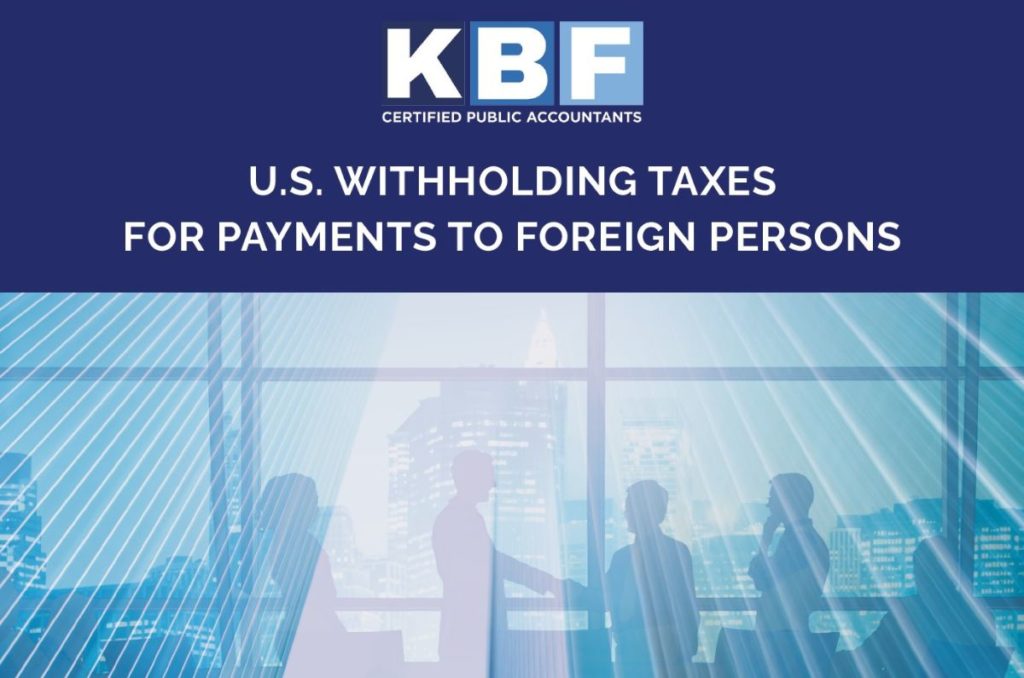U.S. Withholding Taxes for Payments to Foreign Persons

Whilst the United States (“U.S.”) taxes its citizens, residents, and domestic corporations on their worldwide income, nonresident individuals and foreign entities (collectively, foreign persons) are generally taxed on only four categories of income.
The U.S. may impose a tax on a foreign person without legal jurisdiction over that foreign taxpayer sufficient to fully enforce compliance with such taxes. To address this jurisdictional issue and encourage voluntary compliance, the U.S. has legislated withholding tax procedures, which require the U.S. payor (or certain foreign intermediaries) to withhold taxes, remit the taxes to the U.S. Treasury, and report information with respect to the withholding to the Internal Revenue Service (“IRS”).
When a U.S. individual or entity transacts with a foreign person, it is important for both parties to understand whether the U.S. withholding taxes apply and, if so, what is required to stay compliant and prevent costly penalties.
To know more about withholding tax rules, download our whitepaper here.
